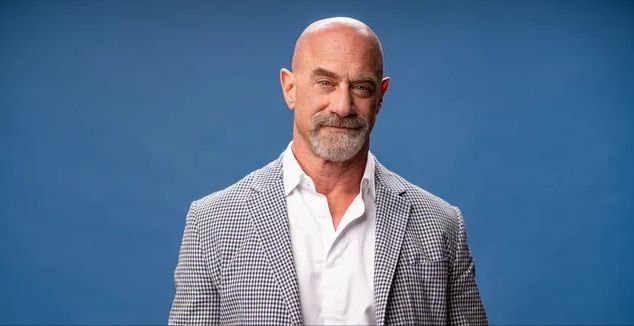
The Return: Stabler, SVU, and the Echoes of Trauma
Christopher Meloni's return to Law & Order: SVU after a decade-long absence wasn't just a television event; it was a cultural tremor. It was the resurrection of a beloved figure, a familiar face etched in the collective memory of millions, and a chance to revisit a partnership that defined an era of procedural television. But more profoundly, Stabler's comeback wasn't simply about ratings; it was about acknowledging the lingering weight of trauma, the enduring impact of the cases that haunted both him and Olivia Benson, and the complex, evolving landscape of justice.
For years, Elliot Stabler was the unwavering anchor of SVU. He was the impulsive, volatile partner to Olivia's empathetic restraint. Their chemistry, a fascinating dance between fire and ice, was the heart of the show. He was the protector, the enforcer, often blurring the lines of legality in his pursuit of justice for the vulnerable victims they served. But his methods, fueled by righteous anger and a deep-seated need to protect, ultimately proved unsustainable. His abrupt departure in 2011 left a void not only in Olivia's life but also in the narrative of the show itself.
The news of his return, heralded with fanfare and anticipation, was met with mixed emotions. Excitement was naturally paramount. Fans yearned for the rekindling of the Benson-Stabler dynamic, the witty banter, the unspoken understanding that had defined their relationship. But there was also trepidation. How would Stabler, a man hardened by years on the force, navigate the complexities of a world that had changed dramatically in his absence? Would his methods still resonate in an era increasingly focused on de-escalation, accountability, and nuanced perspectives on sexual assault and domestic violence?
"Law & Order: Organized Crime," the spinoff series built around Stabler's return, offered a glimpse into the man he had become. He was older, visibly weathered, haunted by the ghost of his wife, Kathy, who was tragically killed. He was grappling with grief, guilt, and a profound sense of loss. This wasn't the same Stabler who confidently strode into SVU headquarters. This was a man broken down and rebuilt, forced to confront his own past actions and the consequences they wrought.
His appearances on SVU were even more poignant. The reunion with Olivia, fraught with awkwardness and unspoken feelings, highlighted the years that had stretched between them, years filled with individual triumphs and personal tragedies. The unspoken tension, the yearning for connection, hung heavy in the air, a testament to the enduring bond they shared.
But the true power of Stabler's return lay in its exploration of the lasting impact of trauma. Both he and Olivia carried the weight of countless cases, the memories of the victims they couldn't save, the perpetrators who slipped through their fingers. Stabler's PTSD, hinted at throughout his original run, was now brought to the forefront, a raw and unflinching portrayal of the psychological toll of fighting the darkest corners of humanity.
His return also forced a re-evaluation of his past actions. The series didn't shy away from acknowledging the problematic aspects of his behavior, the moments where his passion crossed the line into excessive force or questionable tactics. This self-awareness, a departure from the more simplistic portrayal of law enforcement in earlier seasons, acknowledged the need for accountability and the complexities of navigating justice within a flawed system.
Ultimately, Chris Meloni's return wasn't just a nostalgic trip down memory lane. It was a bold move that allowed "Law & Order: SVU" to explore deeper themes of trauma, accountability, and the enduring power of human connection. It offered a chance to revisit a beloved character and confront the complexities of his past, creating a narrative that was both compelling and surprisingly relevant to the social and political landscape of today. It was a reminder that even after years apart, the echoes of shared experiences can reverberate through time, shaping who we are and how we perceive the world around us. The return of Elliot Stabler wasn't just a comeback; it was a reckoning, a reflection, and a testament to the enduring power of storytelling.
